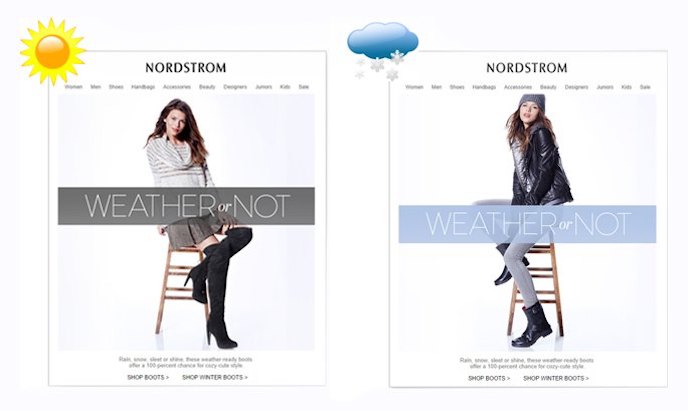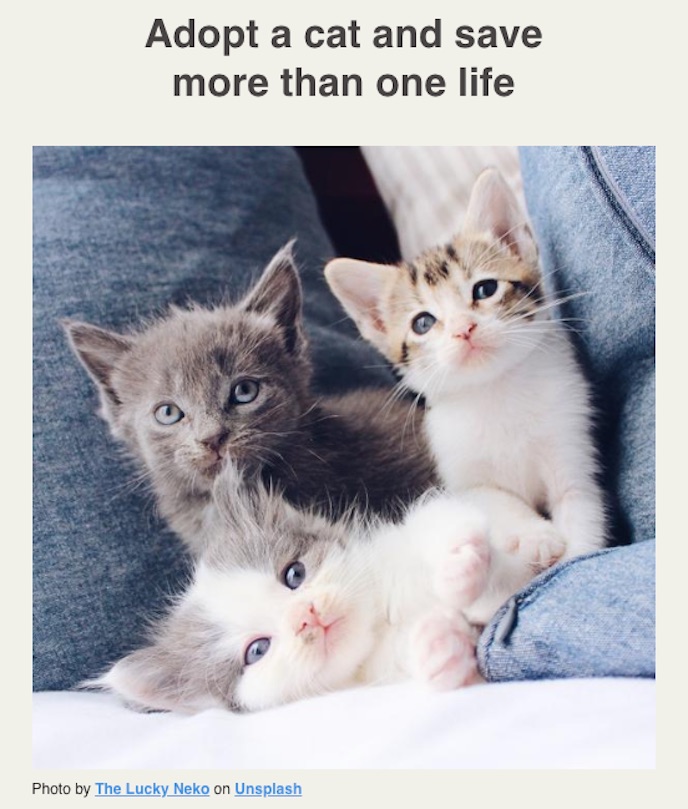When it comes to email marketing, we all know that personalizing your email content will increase open rates, click rates, and sales. According to a study from done by Experian, personalized emails get six times higher transaction rates.
With such great results, why doesn’t every business personalize their emails for each subscriber? The main reason is it’s time consuming. Personalized email segmentation involves multiple steps — creating unique versions of each email, building your segments, scheduling your emails, and then tracking the results from all your messages. This is where Aweber’s newly released dynamic email content comes in.

With dynamic email content, you can create one email that’s personalized for each subscriber. You only need to hit send once!
What Is Dynamic Email Content?
Dynamic email content is text or images within your message that change based on the data or information you have about a subscriber. For example, let’s say you run an animal shelter where you care for both cats and dogs. Your subscribers are animal lovers — some of them prefer cats, while others prefer dogs.
With dynamic email content, you can send one email that delivers dog information to dog lovers, and cat information to cat lovers.
When dog lovers open your email, it will look like this:

When cat lovers open your email, it will look like this:

Personalizing your emails in this way can significantly increase engagement, save time, and help you make more sales.
How To Use Aweber Dynamic Email Content
Aweber pulls the right information into your dynamic emails using dynamic logic code, also called a markup. The markup tells Aweber what data or information to add to your email. You can use the following data stored inside Aweber to customize the content inside your emails:
- Tags
- Custom fields
- Subscriber information — like first name, last name, and email address
- Sign up information — like subscription date, unique unsubscribe link, and location details like city and state
For instance, using the animal shelter example above, let’s say you tag subscribers to identify if they’re cat or dog lovers. Cat lovers have a “cat” tag inside Aweber. Dog lovers have a “dog” tag inside Aweber.
You want to send one email to your subscribers, but personalize the content for both dog lovers and cat lovers. To do that, you can use the headline, “Calling all dog lovers!” for subscribers with the tag “dog.” For subscribers with the tag “cat,” you decide to use the headline “Calling all cat lovers!”
Here’s how you would write the dynamic logic markup for this:
{% if “cat” in subscriber.tags %}
Calling all cat lovers!
{% elif “dog” in subscriber.tags %}
Calling all dog lovers!
{% else %}
With this dynamic logic markup inside your email, you would send one email with two personalized headlines for cat and dog lovers. In addition, you don’t need to stop at just headlines. You can use dynamic email content anywhere inside the Aweber message editor, including your email subject line!
Start Sending Emails with Dynamic Content
If your business doesn’t have an email list, you are leaving a ton of money on the table. My email list is the number one reason why my blog makes income that it does. Aweber is one of the best email service providers I have ever used, and the new dynamic email content features makes them even better.
Aweber offers a 30-day free trial account for all new customers. The account is just like a normal Aweber account and includes unlimited email campaigns, newsletter, broadcasts and follow ups. It’s a great way to test drive Aweber to see what it can do for your business. Your satisfaction is guaranteed. If you find that email marketing is not for you, contact Aweber within 30 days and owe nothing.
